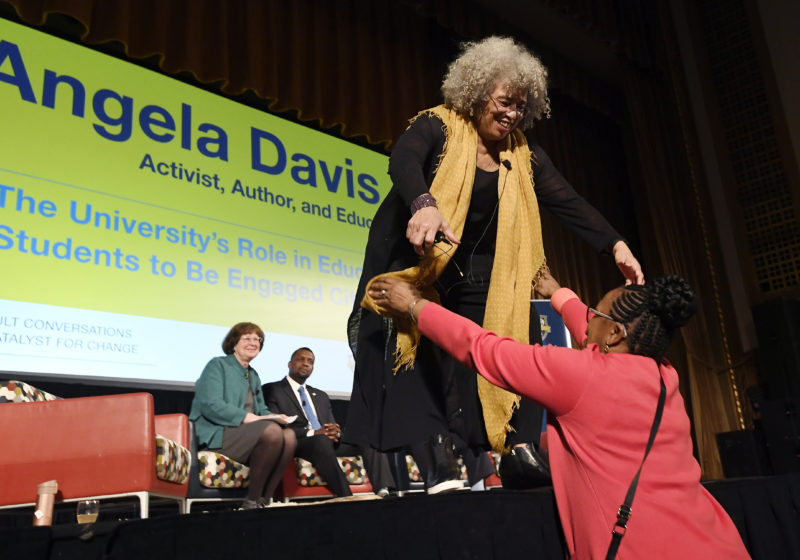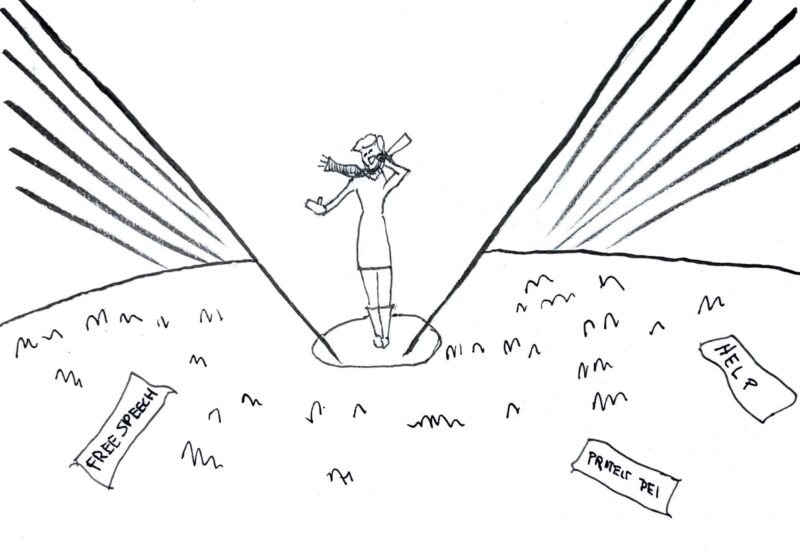Angela Davis — an activist and scholar known for her prison abolitionist work — championed critical thinking in her talk last Tuesday, beginning with a criticism of universities, including UR.
“I was asked to talk about what the University can do to encourage engaged citizens, but first I want to talk about the University,” Davis said. “Because I think the University is as much a part of the problem as students can be a part of the solution.”
“If universities were living up to their announced aim — education, simply put,” Davis said, “then we would not have to pose this question regarding social engagement and political activism.”
The event, held in Strong Auditorium, was organized as part of Dean Donald Hall’s speaker series on “Difficult Conversations as a Catalyst for Change.”
Davis’ talk outlined specific steps the University could take to encourage engaged citizenship. This included a confrontation of the University’s history (specifically, acknowledging UR’s existence on colonized land that once belonged to the Seneca people), and an emphasis on the humanities. The decline of support for the humanities, Davis said, has helped bring about “a crisis in democracy.”
Davis also criticized the University for celebrating diversity without changing the structural systems of oppression.
“Shouldn’t diversity and inclusion always be accompanied by justice and transformation?” she asked. “Are we better off by simply assimilating people of color, women, LGBTQ people, into institutions that continue to function exactly as they did when these people were marginalized?”
Davis interacted directly with the audience throughout. “When did women get the vote?” she asked at one point. Murmurs and mumbles came from the audience before it broke into laughter.
“That was a trick question,” Davis said, smiling. “Designed to test your critical skills.” She then answered her question: “We used to say 1920, but black women didn’t get the vote until 1965,” she said, to immediate applause.
After her talk, Davis was interviewed by a panel including faculty members Kristin Doughty and John Barker, East High School superintendent Shaun Nelms, and UR sophomore Efua Agyare-Kumi, a Campus Times news editor.
In the interview, Davis spoke of her own background. In the 1970s, Davis was incarcerated, after being placed on the FBI’s “Ten Most Wanted Fugitives List” for a crime she was later acquitted of. Her arrest sparked an international movement, which she said is a testament to the power of “global solidarities.”
When professor Doughty asked Davis about the current debate on Public Safety’s proposal to station armed officers on the Eastman and River campuses, Davis began by saying, “Okay, first of all, let’s take guns out of the equation,” before elaborating on a redefinition of security as we know it.
Doughty also asked Davis what decarceration — reducing the number of people imprisoned, or the rate of imprisonment — would look like.
Davis asked if anyone in the audience had been incarcerated. One audience member, Precious Bedell, raised her hand and came to the foot of the stage, where Davis walked to greet her. Davis told the audience that she had met Bedell before, at a Columbia University conference on mass incarceration. She said Bedell had done time at Bedford Hills Correctional Facilities for Women. They embraced, and then both Bedell and Davis returned to their seats.
Davis concluded, “That’s the beginning of an answer.”






